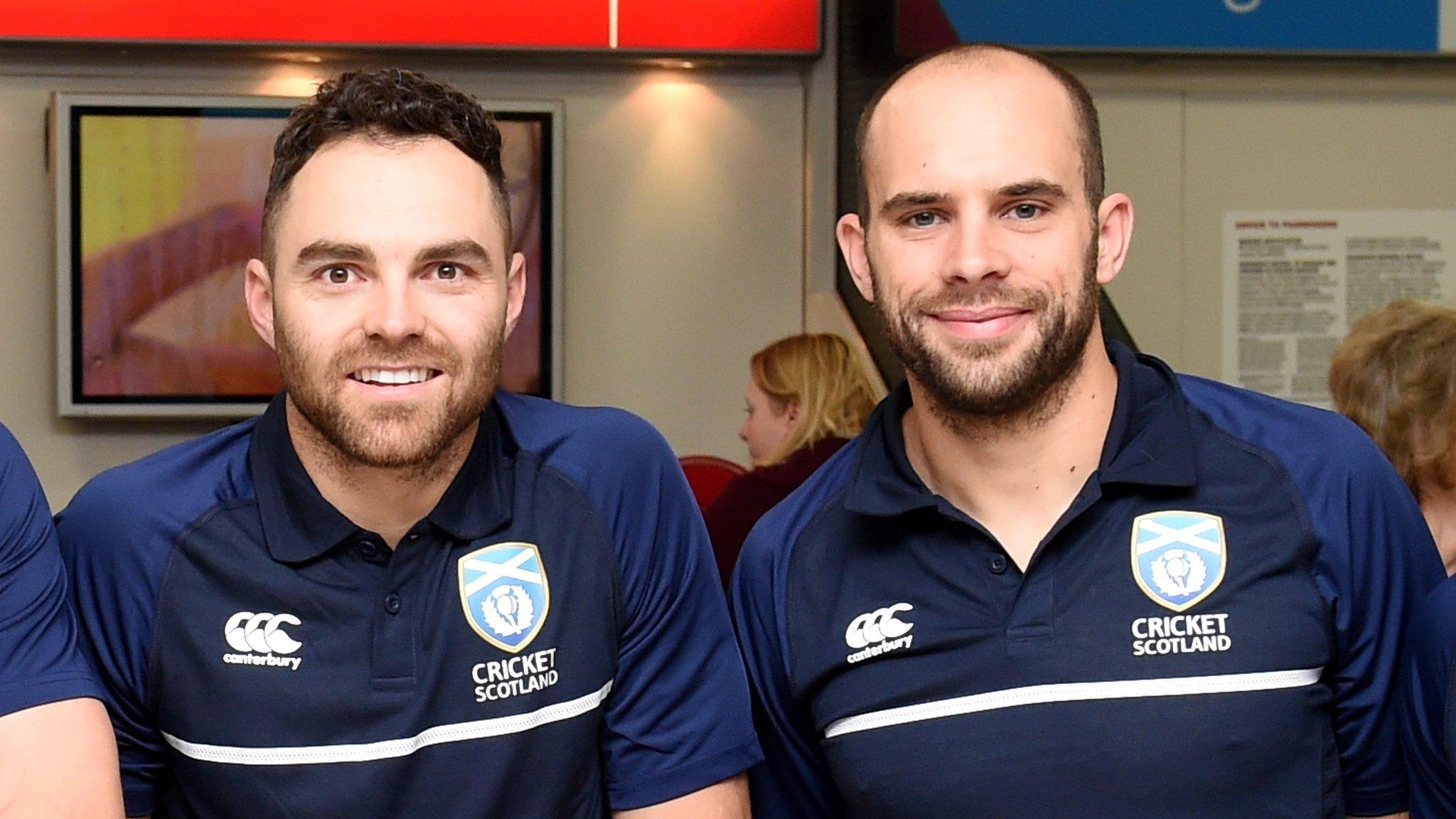Nathan Hines says he 'had to leave' Scotland with Vern Cotter
- Published
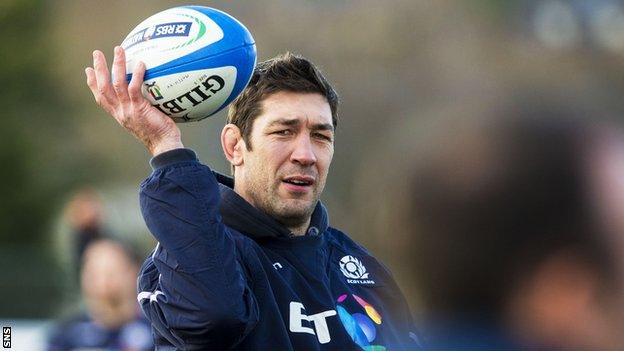
Scotland resource coach Nathan Hines will follow boss Vern Cotter to Montpellier at the end of the season
Scotland resource coach Nathan Hines says he "had to leave" the country to continue his own development.
The former lock, 40, who joined the Scotland coaching staff in May 2015, will follow national boss Vern Cotter when he moves from Scotland to Montpellier in June.
"There wasn't anything in Scotland available of the same profile," Hines told BBC Scotland.
"So, if I wanted to advance and become better as a coach, I had to leave."
Australian-born Hines won 77 Scotland caps between 2000 and 2011 and toured South Africa with the British and Irish Lions in 2009.
His club career included stints with Perpignan and Clermont - where he played under Cotter - in the cash-rich French Top 14.
Privately-owned clubs in the French top-flight, and England's Aviva Premiership, have the financial capacity to attract many of the game's leading lights, but Hines feels Scotland's union-run teams can still compete in European tournaments.
"You can have money and pay players as much as you want, but if you don't have the culture in the club, ultimately it's not going to work," he said. "You might be able to attract players, but it doesn't guarantee you success.
"If you look at Edinburgh when they made the Heineken Cup semi-final (in 2012), they had a smaller budget and beat Toulouse in the quarter-final.
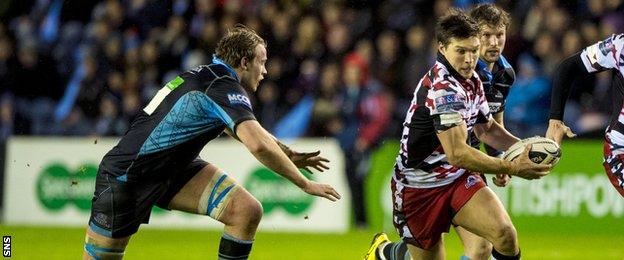
Member clubs have voted unanimously to open up Edinburgh and Glasgow Warriors to external investment
"In France, it's pretty much like for like and, if you're talking about the Aviva Premiership and the Top 14, the salary cap isn't that much different anyway.
"In Scotland, they're probably a bit behind the eight ball when it comes to the amount of money they've got to attract players, but I don't think it's going to be a massive problem.
"Glasgow Warriors are punching way above their weight if you're looking at the league table of budgets."
In October, Scottish Rugby's member clubs voted unanimously to allow the union to seek external investment in the two professional sides.
Hines, however, is not convinced an influx of private cash would significantly boost either team's performance.
"Glasgow have got 28 international players, so I don't know how much more you can fit into the same squad," he said.
"Facilities-wise, it might make a bit of a difference, but I think what you want Edinburgh and Glasgow to do is breed and produce Scottish players.
"With a massive injection of cash, you might be able to pay them a bit more and provide a little bit more structure underneath with the academies.
"The French players in France now are more valuable than international players because they have a rule where a certain number of French players have to be part of the match-day squads, so if you're a decent French player, you can demand a little bit more money.
"I'm not sure how the private investment will work in Scotland; it might ease the burden on the union a little bit, but I'm not sure how much difference it'll make."
- Published16 December 2016
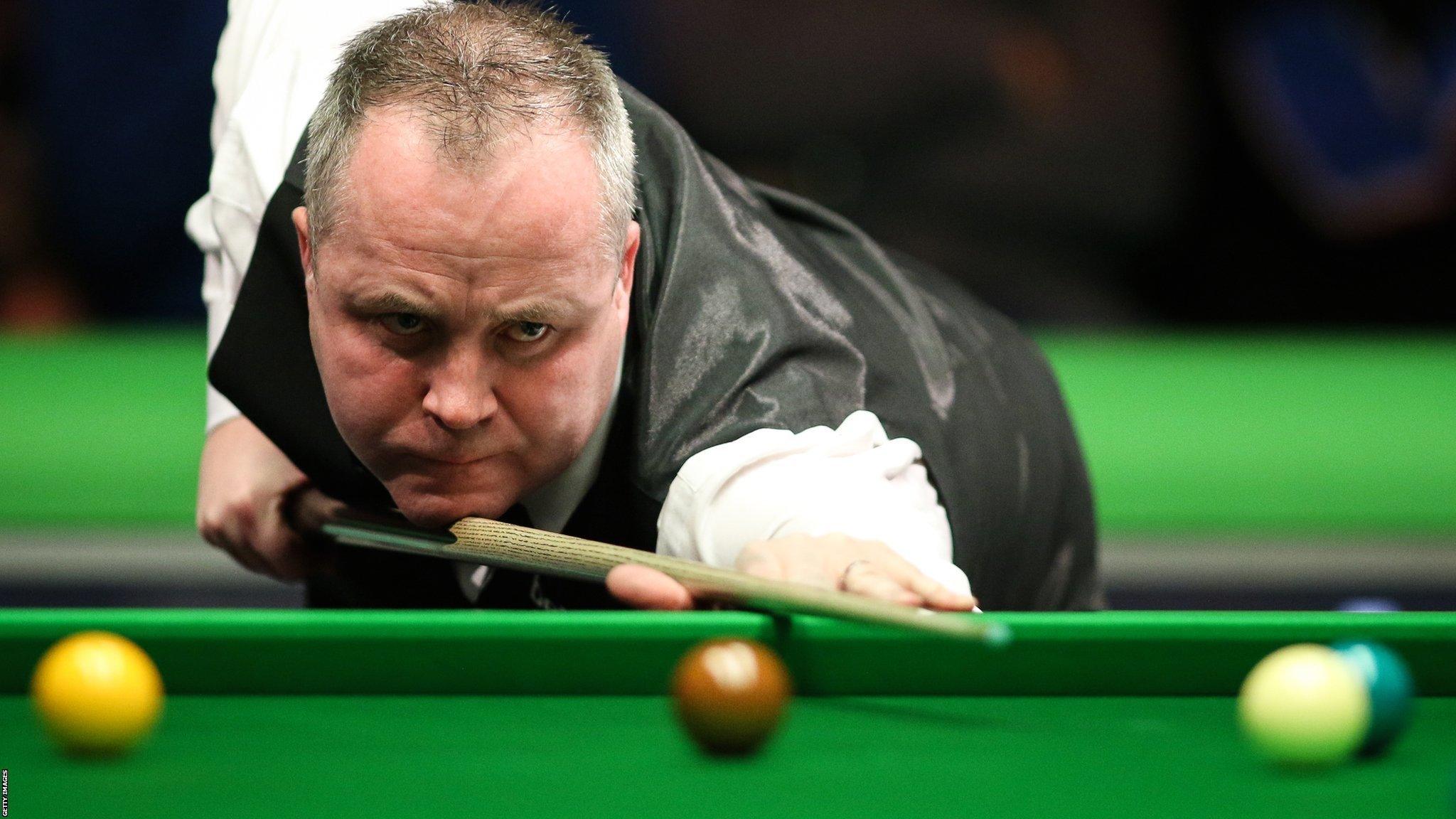
- Published16 December 2016
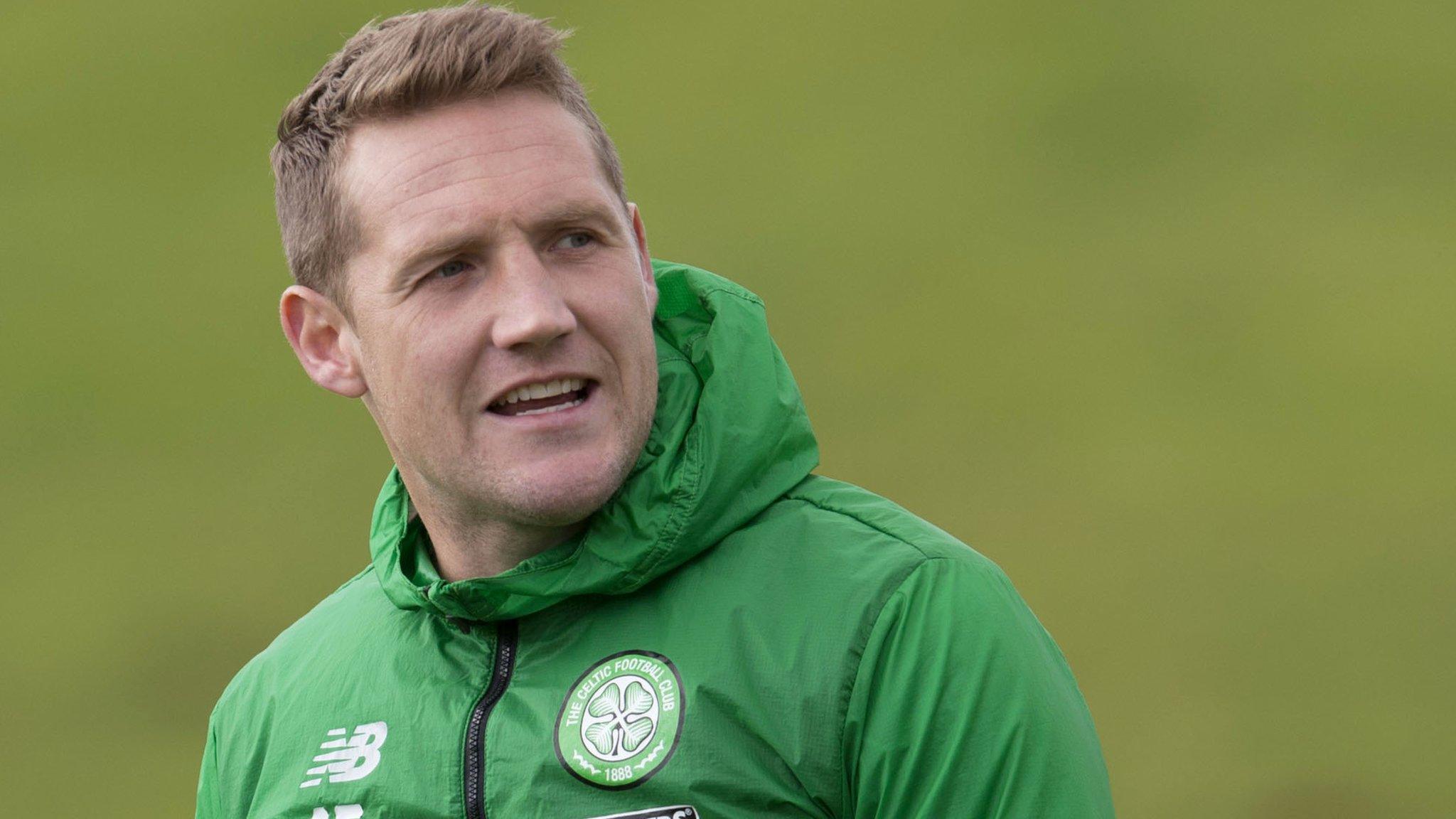
- Published16 December 2016
